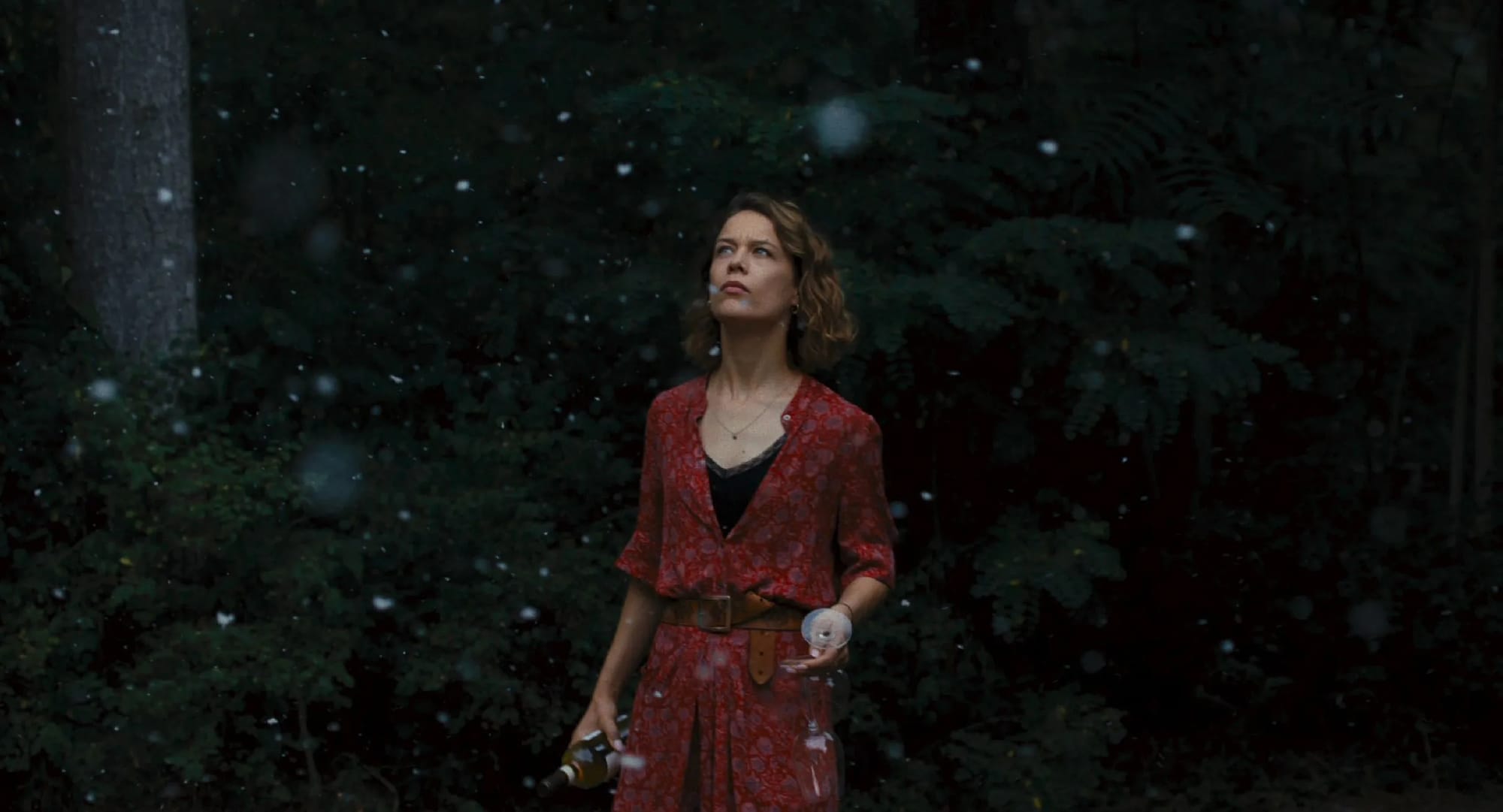Afire, One of the Year's Most Romantic Films

The Berlin School’s prized filmmaker director and writer Christian Petzold’s new film, Afire, releases this weekend at the Coolidge Corner Theater. The German summer romance is bound to be one of the year’s most literary films, a claim that shouldn’t come as a surprise considering the director’s education, but it’s also one of the year’s most romantic films.
Two friends, Leon (Thomas Schubert) the writer and Felix (Langston Uibel) the photographer, vacation at a holiday home owned by Felix’s family on the Baltic Sea over the summer to finish a book manuscript and portfolio, respectively. When they arrive, an elusive and alluring woman, Nadja (Paula Beer) is already there, leaving traces of her presence but having a life too interesting to actually loaf around the house. Sharing a room, Leon and Felix hear Nadja having some pretty great sex back-to-back nights through the paper-thin walls before they actually encounter her in the flesh. When Leon finally glimpses her, there’s something captivating about the confident way she carries herself. Her galvanizing wardrobe helps on this point; she always wears stronger colors than the men around her whose dark styles blend together into normality in the face of her singularity.
A forest fire rages on the local news in the meanwhile. Leon ignores the danger and the more optimistic Felix assumes, like only a character in a book can, that we will be safe, or perhaps, the worst will never happen to us. Felix and Devid (Enno Trebs), Nadja’s sex partner from the night before, hit it off until they become sex partners themselves. But like the great threesome description in Ingmar Bergman’s Persona (1966), all intimate activity is completely auditory. With just a single on-screen kiss, a passionless one delivered only as the punchline to a joke, the mix of heterosexual and same-sex relationships between the four characters consummate in a sensuality only possible through the passionate delivery of our species’ single most defining characteristic: the ability to poetically use words. This voyeuristic denial makes the intimacy more innocent—and sexier—though the former is more important to where the film will end up, as the fire positions its violence to eternally absciss the four friends.
Continue reading at the Boston Hassle.